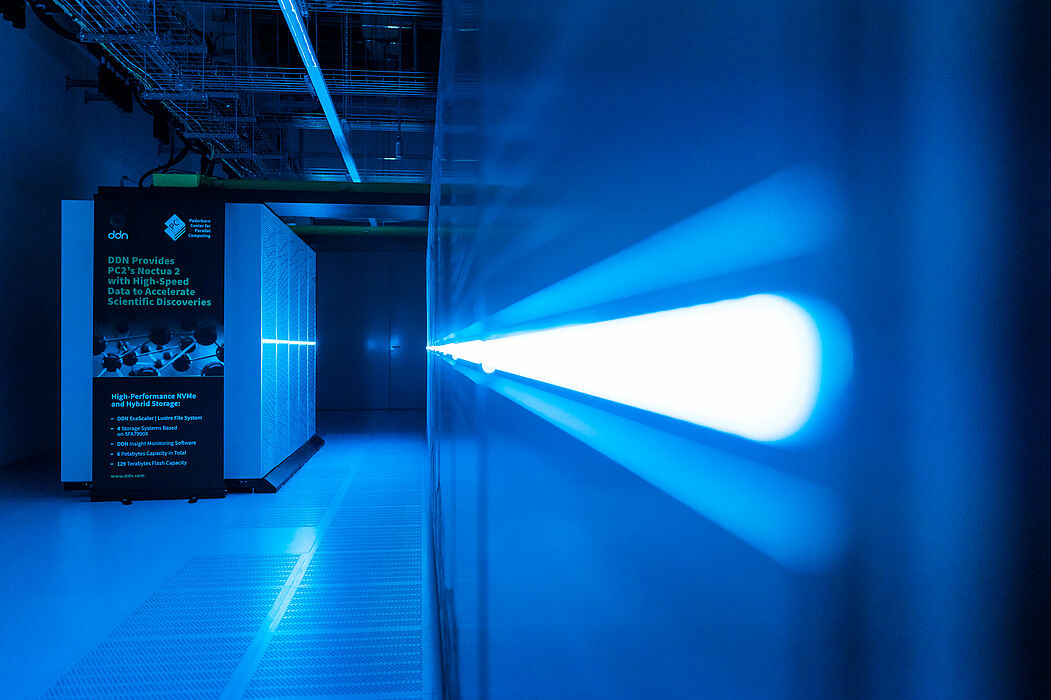International AI research project headed by Paderborn University
Deep neural networks – statistical machine learning processes – are a fundamental component of artificial intelligence (AI). They identify patterns, analyse images and process language. However, they are also responsible for an increasing percentage of processing loads, and thus both power consumption and CO2 emissions in data centres. Researchers at Paderborn University are involved in a new research project working on ways to improve the energy efficiency of these AI systems by attempting to significantly reduce the number and accuracy of the calculations required. This uses programmable hardware in the form of FPGAs (field programmable gate arrays) rather than the usual central processing units (CPUs) and graphics processing units (GPUs). The Federal Ministry for the Environment, Nature Conservation, Nuclear Safety and Consumer Protection (BMUV) has awarded the research around 1.5 million euros of funding until the end of 2025 as a flagship AI project.
‘Deep neural networks are trained using a vast quantity of data in a complex process, and the resulting models are then used for forecasting purposes during the utilisation phase. The project is primarily targeting energy savings during the utilisation phase for large models’, explains Professor Marco Platzner of Paderborn University, who is heading up the research project. GPUs or CPUs are generally used for this. The more accurate the calculations, the higher the energy expenditure. ‘GPUs and CPUs often have low energy efficiency. Given this, we are instead using FPGAs, as they offer significant energy and performance benefits’, Platzner adds.
The researchers are also using a special method known as approximate computing. Platzner explains: ‘FPGAs enable us to reduce the accuracy of individual calculation steps, sometimes dramatically so, without adversely affecting the quality required for model forecasting. This enables us to significantly reduce computing time, which offers significant energy savings.’
Platzner’s Computer Science department and the Paderborn Center for Parallel Computing (PC2) at Paderborn University, which has one of the most powerful FPGA systems in the world, have long been working on energy-efficient computing using FPGAs, including for AI applications. ‘The BMUV’s tender for flagship AI projects is an exceptional opportunity to further contribute to ensuring computer infrastructure use in a way that conserves resources’, Platzner notes. However, the team is hoping that their research will not only reduce the power consumption of AI systems, but also provide a quantitative assessment of this power consumption and make it transparent to AI system users. The initial results are expected next year.
Alongside Paderborn University, the project also involves Hamm-Lippstadt University of Applied Sciences, South Westphalia University of Applied Sciences, HPC company MEGWARE (Chemnitz) and AMD Research Labs in Ireland.
Further information is available at eki-project.tech.


